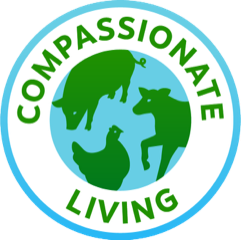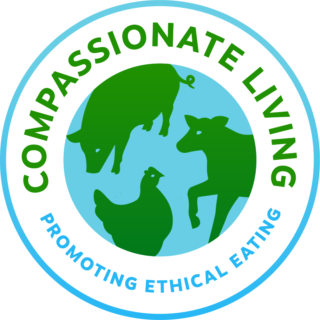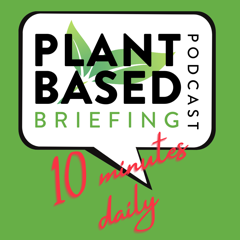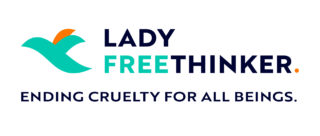Podcast Transcript
Hope
Welcome to the Hope for the Animals Podcast sponsored by United Poultry Concerns. I’m your host, Hope Bohanec and you can find all our shows at HopeForTheAnimalsPodcast.org. I welcome questions, comments, feedback on this show. You can email me at hope@upc-online.org
This is the first of a series that we are calling the reason for vegan series that will be supplemental to our full episodes. In these short chats, I will be focusing on certain aspects of the animal agriculture industry, hidden horrors that most people have no idea about. But these practices are universal to the animal agriculture industry, and they are at the core of why we are ethical vegans. And today I’ll be talking about the egg industry and a secret that they do not want people to know about. And that is the mass killing of baby male chicks.
Chickens have been genetically manipulated for decades. There are two genetic types now who are bred for chicken meat and eggs. Chickens bred for their flesh are called broiler chickens, and they are bred to gain weight fast. In fact, they grow about 65 times faster than they would normally. And they are at full market weight, much heavier than they would ever be naturally, at six weeks old. They are slaughtered at just six or seven weeks old, they barely get any life, and they’re killed in basically what would be the human equivalent of childhood.
The other type of chicken is bred for egg laying. The modern egg laying chicken has been genetically manipulated to lay massive amounts of eggs, many, many more than her ancestor the jungle fowl of Southeast Asia and the foothills of the Himalayas. And, of course, only half of the chicks who are born are females who lay eggs. The male chicks born to this genetic type of egg laying chicken. Egg-laying chickens don’t grow fast enough or big enough to be profitable to bee slaughter for meat, so they have no commercial value to the industry, and they are literally thrown away. Globally, about six billion newborn baby male chicks are killed every year in the egg industry.
So, what would be a natural way for a chick to be hatched? Of course, it would be in a warm nest with a doting mother hen. In the first 24 hours after a fertilized egg has been laid, there’s a tiny heart that begins beating. Blood vessels are beginning to form. The mother hen and the babies, while they’re still in the egg, can peep and cluck to each other. Vocalizing information like temperature, the baby’s asking to be warmed up. The mother offering comfort and forming bonds as a family. This is all completely denied in any animal farming for eggs or chicken meat.
In modern egg, chicken, and meat farming, baby chicks are hatched at industrial hatcheries in rows and rows of metal drawers with no parent around to comfort and love them. As soon as they come into the world, they’re wet and exhausted from cracking their way out of the shell. And instead of having a loving mother to comfort and warm them, they are immediately thrust into a world of conveyor belts and metal machinery and workers tossing them about like canned goods.
Hatcheries move so fast, with thousands of chicks pouring through the machinery that there are accounts from workers where they would see chicks that have gotten their wings caught or their leg caught in the metal and it has ripped open the skin, ripped to the bone or completely ripped of—like a little wing ripped off. And what the workers have to do is toss that baby out of production and onto the floor to be thrown away with the garbage hours later. And the babies can lay there on the floor, peeping in distress for hours until they either die or are thrown out with the garbage. It’s a brutal, brutal industry.
Hope 05:10
The workers determine the sex of the chicks, and the females are debeaked. A portion of their beak is painfully burned off and this impairs a hen’s ability to eat normally, to preen her feathers, and it can cause lifelong pain. The little chicks are injected with pharmaceuticals, and they’re sent by the mail to egg industry facilities, to feed stores, which is another hidden horror in and of itself.
The transportation through the regular postal mail, no food or water for hours or days. Some die in transit from the stress. And some unwanted males are actually thrown in the packages and are called “packers,” literally used as packing material. And the companies are gambling that it will be the males who will die.
Roosters who are born to egg laying hens are considered a waste product, and they are thrown away literally in the garbage by the millions. They’re dumped into massive trash bins or dumpsters in the backs of hatcheries to slowly die of dehydration or exposure or to suffocate under the weight of their brothers. Others are sent down conveyor belts and dropped into these massive grinding machines to be ground up alive for fertilizer and other products. And still others find themselves crammed into dark boxes that fill with gas and the chicks slowly and painfully die of asphyxiation. And sometimes companies use high-speed vacuums that suck up the chicks through a series of pipes, and they’ll end up in a box made of metal and the frightened chicks are then electrocuted to death.
What kind of world is it? Where there is an industry that finds more economical and efficient ways to slaughter billions of babies. This practice is universal to the egg industry and egg cartons with labels like “cage-free,” “free-range” and “pasture fed” they all source their chicks from these same industrial hatcheries. It’s not profitable for these farms to hatch their own chicks. They just they couldn’t make a profit if they did that. So, they do source all their chicks from industrial hatcheries. This is just one of the hidden cruelties behind these so-called humane labels.
And, you know, these are newly born baby chicks, little downy yellow chicks. We see them on Easter cards and baby shower cards. Our culture reveres these little chicks as symbols of innocence and new life and springtime, and we are killing them behind closed doors by the billions for the egg industry.
I personally haven’t eaten an egg for over 30 years, and I am healthy and thriving. It is unnecessary and causes so much cruelty and sadness. Please don’t eat eggs. Eggs are easily substituted in baking. There are tons of egg free recipes online for anything that you would usually use for an egg.
Really, the only way to be sure to avoid this massive suffering and killing is to live vegan.
If you’d like to learn more about the egg industry, about living vegan, about the joys of chickens, please go to UPC-online.org and find out more. And you can also find all our other podcast there, as well as at HopeForTheAnimalsPodcast.org.
I always welcome your comments, questions and feedback. You can email me at hope@upc-online.org. And thank you for listening to our Reason for Vegan Series, and please, from this day forward, don’t eat eggs and live vegan.




